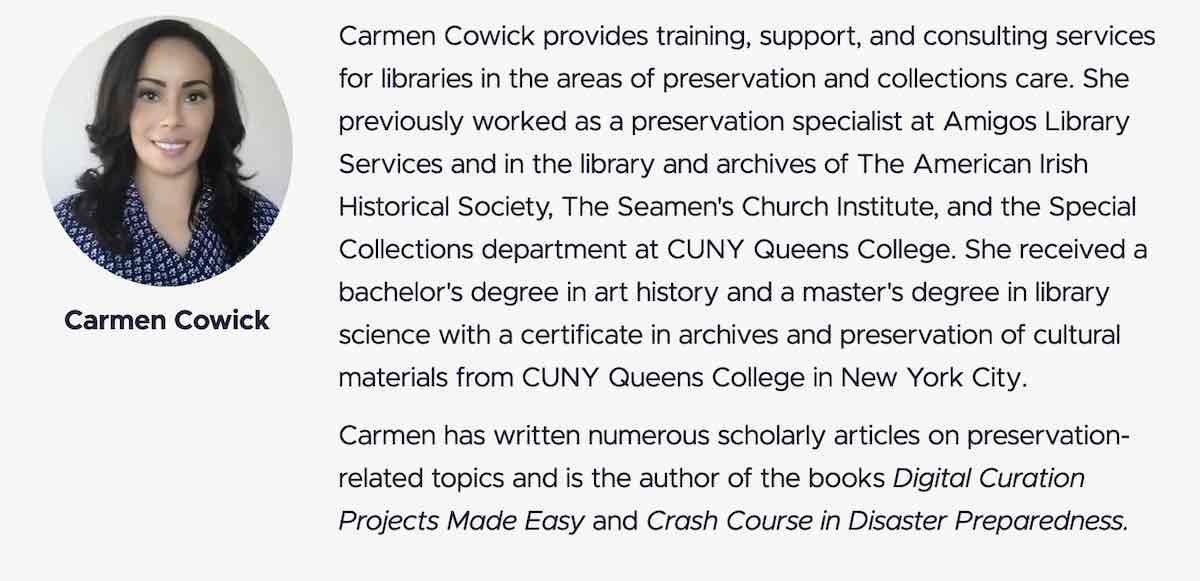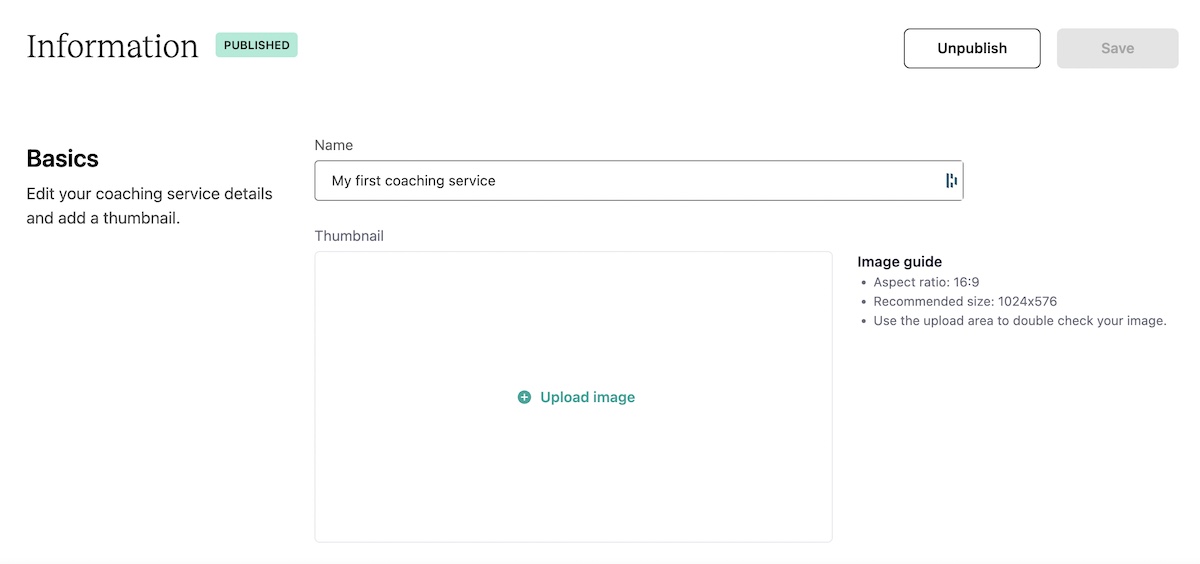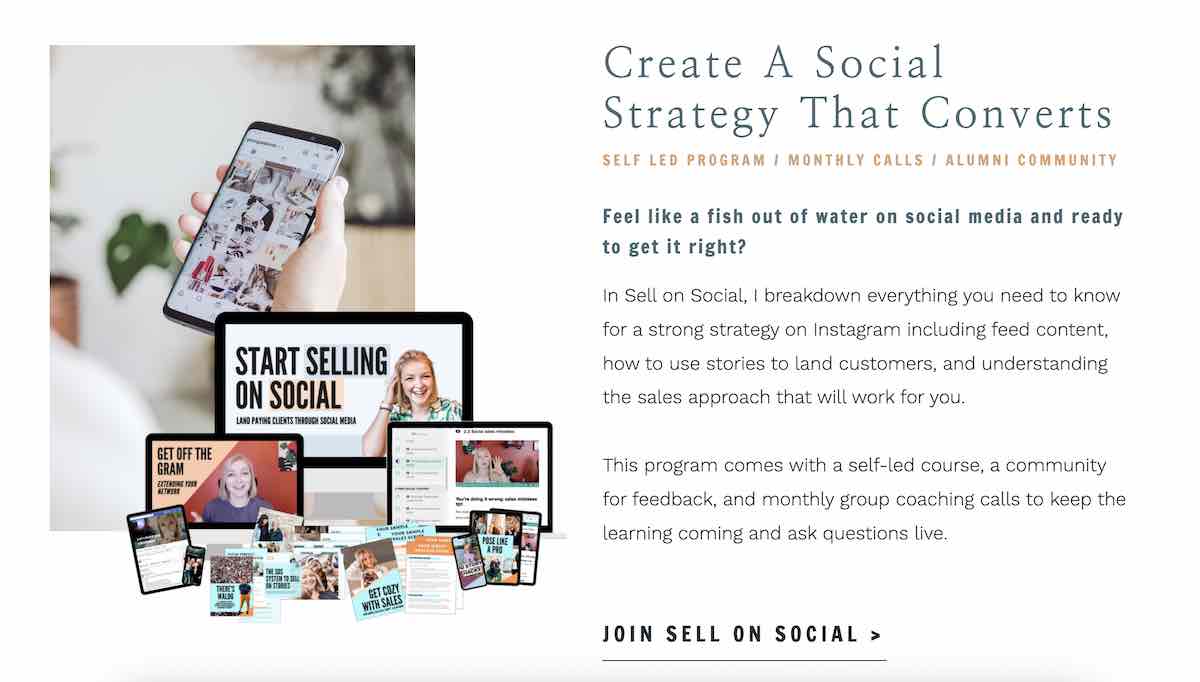How to start a coaching business and make money in 2023


If you love helping others and inspiring them to chase their dreams, coaching is a logical business opportunity for you. You get to be your client’s personal cheerleader and guide them through their growth. Channeling your passion into a profitable business might seem daunting. But anyone can learn how to start a coaching business. So it may be more attainable than you think. In fact, online coaching is on the rise, and it’s not too late for you to get started.
Many coaches have built profitable businesses online. As of 2022, there were over 109,000 coaches globally, and the coaching industry generated over $4.56 billion.
To make a supplemental or full-time income, you’ll need to first understand how to start a coaching business and make it profitable.
Take our quiz
Find out which digital product you should create first.
What is coaching?
Coaches help individuals reach their full potential by providing guidance and support.
Successful coaching is based on a collaborative relationship between the coach and the client.
As a coach, you help clients identify and achieve personal and professional goals and take on the role of a sounding board. You provide constructive feedback and offer resources and tools to help your client succeed.
When it comes to coaching sessions, you can conduct one-on-one or group sessions that are in-person or online. There are also several types of coaching you can offer: career coaching, life coaching, business coaching, and more.
Why should you start a coaching business?
Many creators gravitate toward coaching because they’re passionate about helping others and want to make a positive impact on their clients’ lives. But, that’s not the only reason to start a coaching business.
Here are other top reasons:
- Flexibility: In 2022, coaches only spent an average of about 12 hours per week coaching. You can coach from anywhere and have more flexibility to set your schedule.
- Financial rewards: Starting a coaching business can be financially rewarding. The average coaching salary is currently $52,800. But, when you run a coaching business full-time, you can earn more. As you grow your business, you can create multiple income streams by offering group coaching programs, online courses, and other products and services.
Types of coaches
Coaches specialize in everything from increasing productivity to improving relationships. If you’re considering starting an online coaching business, you might already have a field of coaching in mind.
If not, here are some of the most popular types of online business coaches to consider:
- Life coaches
- Business coaches
- Health coaches
- Wellness coaches
- Executive coaches
- Relationship coaches
- Career coaches
- Creativity coaches
- Finance coaches
- Spiritual coaches
- Sales coaches
- Marketing coaches
- Content coaches
- Leadership coaches
How to start a coaching business
Starting a coaching business can be a fulfilling and lucrative career. While it’s natural to wonder which type of coaching makes the most money, there are other factors that influence your earning potential.
Certain niches may have higher-paying clients. For example, business coaches tend to have higher than average income compared to other coaching niches.
But, ultimately, how much you can make also depends on your experience and financial goals. Recent studies estimate that the market size of the business coaching industry in the US in 2023 was an impressive $15.2 billion.
No matter which coaching business you start, the principles for getting your business off the ground are the same. To help you start a coaching business, we’ve compiled our favorite tips and strategies from the Teachable community.
1. Choose your coaching niche
It is vital to find a niche because it helps you to target a specific audience, build credibility, and differentiate yourself from other coaches.
By focusing on a niche, you can become an expert in that field and offer coaching services that cater to the unique needs of your clients.
For example, Carmen Cowick, founder of Preserve This, coaches librarians, archivists, and museum professionals in preservation and collections care.


With all the potential niches, how can you find one that’s right for you and has a profitable market?
Here are some steps:
- Consider your personal and professional experience: Think about your experiences and expertise. What have you overcome or accomplished? What unique skills or knowledge do you have that can help others?
- Identify your ideal client: Who do you want to work with? Think about the characteristics of your ideal client, such as age, gender, industry, etc.
- Perform in-depth keyword research: Look up how many people search for your coaching service each month. For example, look up the number of times people searched for “career coach,” then dive deeper by narrowing down specific services or industries. (ex. “How to get a job in fintech”)
- Consider your passions: What topics do you love learning and talking about? Your passion can help drive your coaching business and keep you motivated.
- Evaluate profitability: While passion for your niche is important, you also want to ensure it’s profitable. Consider the demand for your services, the competition, and whether people will pay for your coaching.
2. Test if your coaching niche is profitable
Before investing hours into your niche, test if it’s profitable with these steps:
- Test a waitlist: Create a landing page for your coaching program and encourage people to sign up for your waitlist. Once you have a certain number of people on your waitlist, you can make a decision on whether to launch.
- Research in online communities: Look for online communities where your potential clients hang out. Join these communities and start engaging with people. Ask them about their pain points and what they would be willing to pay for coaching services that address those issues.
- Map out the financials: Calculate your startup costs, including website design, marketing, and coaching tools. Then, map out how much you need to make and how many clients you need to reach that goal.
Doing this research upfront will help you build a coaching business that’s sustainable and successful in the long run. The more information you have about your potential clients and financials, the better decisions you can make.
3. Create a business plan
It should come as no surprise that a solid business plan will help you launch a successful coaching business. But first, you need to determine your goals and objectives. Ask yourself questions like:
- What do I hope to achieve with my coaching business?
- Am I looking to reach financial freedom, work-life balance, help others achieve their goals, or a mixture of all three?
Your goals and objectives will guide your business plan and inform your decision-making. You’ll also want to design a business plan that can grow with you.
As you scale your business, your goals and objectives may change. A flexible business plan can help you scale your online coaching business without sacrificing service quality.
Your business plan can include:
- Goals and objectives
- Tools
- Marketing plan
- Sales strategy
- Financial projections
Next, you’ll select where to offer your coaching services. Coaching is a built-in feature with Teachable, which means you can easily create coaching products, as well as courses and digital downloads.


Because our coaching and course features are on the same platform, you can create and sell your coaching programs, manage payments, and communicate with your clients all through Teachable. Focus on coaching and let the platform handle the technical details.
Marketing plan
You’ll also need to develop a marketing plan to attract clients. Identify your target market, research competitors, and create a unique value proposition that sets you apart.
Your marketing plan should include a combination of social media, email, content, and networking. Content marketing coach Amanda Warfield, for example, uses a mix of social media and email marketing to attract clients.


4. Build a website
Your website serves as a potential client’s first point of contact and establishes your credibility as a coach. So naturally, one of the first steps to get your coaching business off the ground is to build a website.
You can use website builders like Wix, Squarespace, or WordPress to create a professional-looking site. Plus, there are many pre-designed templates to choose from for free on these platforms. You can also purchase themes and templates ranging from $50-$1,000 from marketplaces like Creative Market or ThemeForest—or directly from web designers.
Once your website is up, you’ll need to add copy, including your core value proposition. Value propositions should clearly answer:
- What you offer
- Who you offer it to
- Why clients should choose you over other coaches
5. Plan your coaching program
Planning your coaching program is similar to building a course curriculum. You’ll want to structure your coaching services to meet your client’s needs.
Here are four questions to think about when designing your coaching program:
- What materials will I need to create?
- What coaching services will I offer?
- Will I teach groups or only offer one-on-one coaching?
- How long will my coaching sessions take, and how often will I offer them?
Planning your coaching program ahead will show client’s that you’re credible and they’ll be more likely to trust you.
6. Create a coaching sales page
The next element to consider when kickstarting your coaching business is how your clients will sign up and purchase your services. A coaching sales page is a landing page for potential clients to learn about your coaching services and how you can help them. With Teachable’s easy-to-use platform, you can quickly create a sales page and even include client intake forms.
A good sales page should include clear messaging that highlights your unique selling proposition and coaching program benefits. It should also feature testimonials, social proof, and a call to action to encourage visitors to take the next step.
Teachable creator Mallory Rowan includes all those elements on each sales page.


Each page has details of the coaching program as well as video testimonials that call out measurable client results.


7. Determine your pricing structure
When determining your rates, consider your target market and the competition.
Here are some tips to help you price your coaching services:
- Determine your hourly rate or package pricing: Your price should reflect the value that you provide. You can charge an hourly rate or offer package pricing for a set number of client sessions.
- Consider your target market when setting your rates: Align your pricing with your target audience’s demographic and financial situation. For example, you can charge a premium rate if you’re targeting high-end business coaching clients and lower pricing for budget-conscious clients.
- Keep an eye on your competition: Research the pricing of other coaches in your niche and see how your services and experience stack up. Then, offer pricing that is competitive but still allows you to make a profit.
8. Attract coaching clients
Naturally, getting coaching clients will have the greatest influence on the success of your coaching business.
To attract coaching clients, follow these tips.
- Identify your target audience and their pain points: For example, if you’re a career coach targeting recent college graduates, focus on their struggles with finding a job in a competitive market. Create content such as blog posts on “How to stand out in a crowded job market” or social media posts highlighting success stories of past clients who landed their dream jobs with your guidance.
- Build your online presence: Create a website or blog, build a social media following, and leverage online advertising platforms.
- Offer a free coaching session: Offer a free 30-minute consultation to discuss the client’s goals and challenges.
- Leverage referrals: Ask past clients to refer their friends and family to your coaching services. Or, establish partnerships with other professionals in your industry who can refer clients to you.
You can also attend industry events and conferences to meet potential clients and build relationships with other professionals in your field.
9. Grow your coaching business
Your clients aren’t the only ones who’ll need a growth mindset. As a coach, there are many tools you can leverage to help grow your business. Here are a few:
- Facebook, Instagram, LinkedIn, and Twitter – Reach potential clients and promote your services
- Mailchimp or ActiveCampaign – Build a list of subscribers and send newsletters and promotional emails
- Canva, Adobe Spark, or PicMonkey – Create visually appealing graphics and images for your social media posts/ blog articles
- Zoom – Conduct one-on-one coaching sessions or group coaching sessions
- Teachable – Sell and create online courses, coaching services, and digital products
Start your coaching business with Teachable
Starting a coaching business in 2023 can be exciting and rewarding, but having a clear business plan and a solid foundation is important. Attracting your ideal clients through testimonials and valuable content can help you build a successful coaching business.
Teachable is a codeless platform that makes it easy to start and run an online coaching business. With Teachable, you can easily create a sales page and focus on helping your clients achieve their goals.
If you’re new to creating coaching programs, Teachable offers an easy and accessible way to start. With the option to sign up for a free plan or chat with a Teachable expert, you can explore the features and see how Teachable can support your coaching business.
FAQs
What type of coaching makes the most money?
There is no one type of coaching that consistently makes the most money. Annual coaching income varies depending on factors such as location, target audience, and demand for specific niches.
How much does it cost to start a coaching business?
The cost of starting a coaching business can vary greatly. It can range from a few hundred to a few thousand dollars for things like training, certifications, website creation, and marketing materials
What are some popular coaching business niches?
Some popular coaching business niches include life coaching, business coaching, health and wellness coaching, executive coaching, and career coaching. We recommend picking a niche that aligns with your skills and interests and has a viable target audience.